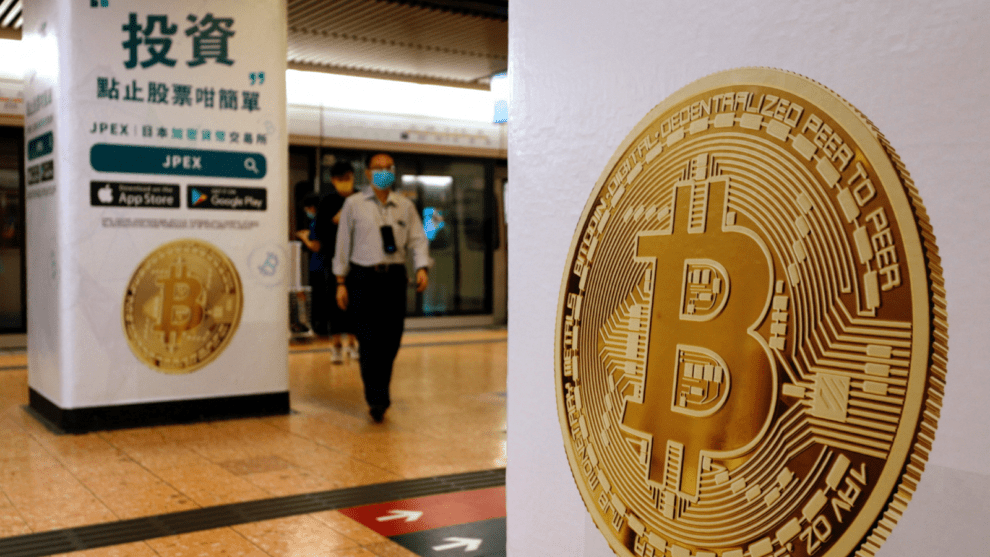Hong Kong is making waves in the world of digital assets, unveiling plans to expand its regulatory framework to include crypto derivatives and margin lending for select investors. This strategic push underscores the city’s ambition to solidify its status as a leading global hub for virtual assets while attracting capital and fostering innovation. With neighboring regions like Singapore and Dubai also vying for dominance in the burgeoning crypto industry, Hong Kong’s latest initiatives signal its determination to stay ahead in the race.
The announcement came during CoinDesk’s Consensus Hong Kong 2025 conference, where Julia Leung, CEO of the Securities and Futures Commission (SFC), revealed that the city is actively considering the approval of derivative products for professional investors and margin lending services for certain customers. These developments are part of a broader effort to enhance Hong Kong’s appeal as a destination for cryptocurrency trading and investment. The move reflects not only the city’s proactive stance on embracing digital assets but also its commitment to balancing innovation with robust regulation.
Hong Kong first embarked on its journey to become a virtual asset trading center in 2022, following Beijing’s comprehensive ban on all cryptocurrency transactions in mainland China the previous year. Since then, the city has introduced several groundbreaking initiatives, including launching Asia’s first spot crypto exchange-traded funds (ETFs). These efforts have positioned Hong Kong as a trailblazer in the region, drawing attention from both retail and institutional investors.
Paul Chan, Hong Kong’s financial secretary, highlighted the progress made so far, noting that regulators have issued nine virtual asset trading platform (VATP) licenses. Among the recent recipients is Bullish Group, a prominent cryptocurrency exchange and owner of the widely recognized crypto news website CoinDesk. Additionally, eight more applications are currently under review, indicating growing interest from businesses eager to operate within Hong Kong’s regulated environment.
Beyond licensing, Chan emphasized that the government is working diligently to advance the regulation of stablecoins—cryptocurrencies pegged to traditional assets like the U.S. dollar. Stablecoins play a crucial role in facilitating seamless transactions and reducing volatility in the crypto market, making their regulation a priority for ensuring stability and trust.
To provide further clarity and direction, the SFC plans to release a detailed virtual asset roadmap later this week. This document will outline specific growth strategies and lay the groundwork for Hong Kong’s continued evolution as a digital asset powerhouse.
The timing of Hong Kong’s announcements aligns with shifting sentiments worldwide, particularly in the United States under President Donald Trump’s administration. Known for his pro-crypto stance, Trump has promised policies that favor the development and adoption of blockchain technology and cryptocurrencies. His inauguration earlier this year coincided with bitcoin reaching an all-time high of $109,071—a testament to the renewed optimism surrounding the crypto space.
Industry leaders attending Consensus Hong Kong echoed this sentiment. Richard Teng, CEO of Binance Holdings, noted a significant change in attitude among institutional investors. “There’s a big shift in sentiment in the U.S.,” he said, pointing out that many sovereign wealth funds and large financial institutions have transitioned from questioning whether they should invest in crypto to determining how much they should allocate. This shift highlights the growing acceptance of cryptocurrencies as legitimate investment vehicles.
Meanwhile, Justin Sun, founder of the Tron blockchain network, shared insights into his decision to invest in World Liberty Financial, a newly launched crypto company partly owned by Trump. According to Sun, the firm focuses on bridging traditional finance with the crypto ecosystem—an alignment that resonates with Hong Kong’s own aspirations. By fostering collaboration between conventional financial systems and emerging technologies, Hong Kong aims to create a dynamic environment where innovation thrives without compromising regulatory integrity.
Despite the excitement surrounding these developments, challenges remain. One concern is the relatively short timeframe for software updates. Unlike competitors such as Singapore and Dubai, which offer extended support for licensed entities, Hong Kong has committed to providing only two years of software updates for approved platforms. While this may raise questions about long-term sustainability, proponents argue that the city’s emphasis on cutting-edge infrastructure and forward-thinking policies compensates for this limitation.
Moreover, the volatile nature of cryptocurrencies poses inherent risks. Bitcoin, for instance, surged past $100,000 earlier this year before pulling back to around $96,000. Such fluctuations underscore the importance of prudent risk management and investor education—areas where Hong Kong must continue to innovate.
As Hong Kong charts its course in the rapidly evolving landscape of digital assets, its focus remains firmly on creating a future-ready financial ecosystem. By embracing crypto derivatives, margin lending, and stablecoin regulation, the city is laying the foundation for sustainable growth. At the same time, its collaborative approach—working closely with industry players and international partners—ensures that it remains adaptable to changing market dynamics.
For now, all eyes are on Hong Kong as it prepares to unveil its virtual asset roadmap. Will the city successfully carve out a niche as a global leader in the crypto space? If its track record is any indication, the answer seems promising. With bold vision, meticulous planning, and unwavering commitment, Hong Kong is poised to redefine what it means to be a modern financial hub in the age of digital transformation.
















Add Comment